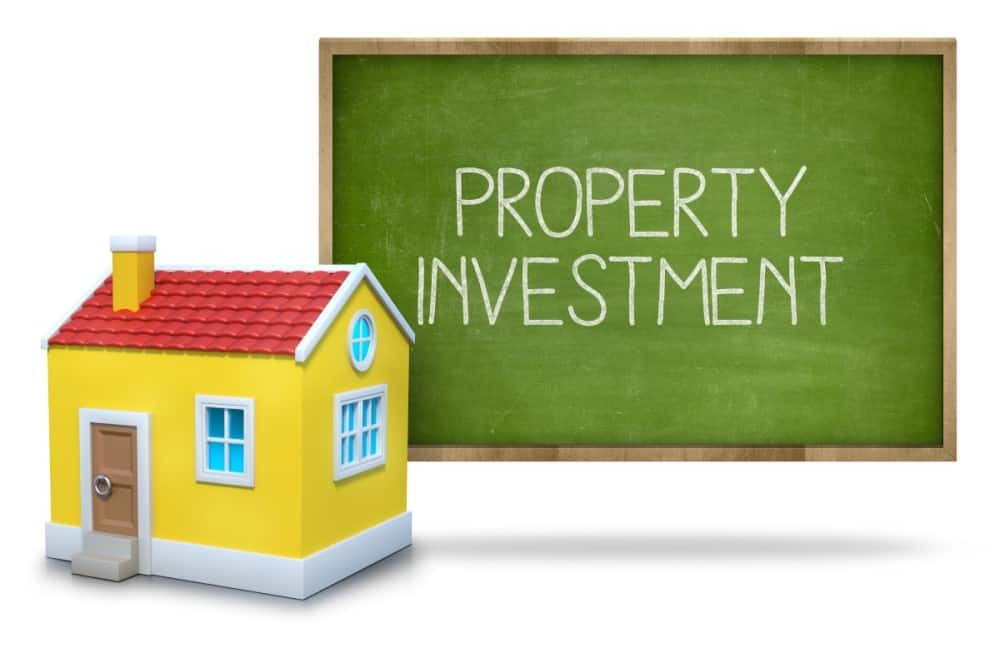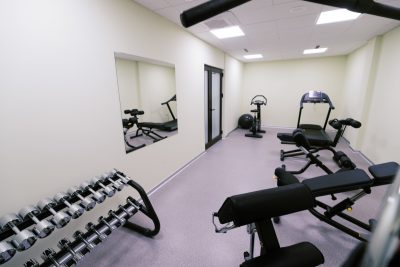Rather than thinking small, at certain times landlords and homeowners make big decisions about whether to invest in their properties. The major conundrum might be about choosing what that ‘big investment’ or in-demand feature should be such as building an extension, converting a loft or garage, installing a pool or landscaping a garden.
[Image source: Deposit photos]
Any decision-making process might need to take into account the timings and costs involved especially in the current economic climate. Scotland, like other parts of the UK, is still reeling from the rise in inflation, increased energy costs and the general higher cost of living.
This article offers advice on assessing whether it makes sense to invest in upgrading your property, and how to upgrade your property with no regrets.
Justifying when the time is right to invest
While it’s true that making any major investment in your property can be a difficult decision, today’s economic climate in Scotland and the UK makes it even more questionable. It is always sensible to look at how your local property market is performing before making any big decisions. This is valid whether you’re a landlord looking to make a big renovation on a rental, or a homeowner considering converting a loft to gain a higher price when you come to sell. In the UK market, prices have been falling, while recent reports indicate Scotland’s market fared better, dropping an average -1.1%, compared to the UK’s decline of 5.2%.
In any case, with the continued squeeze on people’s pockets from the cost-of-living crisis, both landlords and homeowners may still be wary of taking on big projects that require substantial upfront costs. In Scotland and across the UK, the future outlook remains uncertain, making it hard to predict whether investments will pay off in increased rents and capital gains. Many landlords and homeowners, therefore, may opt to delay non-essential upgrades.
Choosing the type of investment to make
For some owners, investing in property may not always boil down to cash flow or opportune timings. There are big projects that people choose to take on, by virtue of the massive improvement or modernisation those renovations make. You might be investing knowing that the potential is there to add value to your property. With these in mind, here are some major projects:
Extensions – Undergoing an extension can create extra living space and result in additional bedrooms to maximise rental income. For instance, a two-storey side or rear extension often provides the best return, but requires significant investment that may range from £25,000 for a small extension up to £100,000 or more.
Installing a swimming pool – Building a swimming pool can greatly enhance your property’s luxury appeal. Ongoing maintenance must be factored in.
Loft conversions – Converting an unused loft into an extra bedroom and bathroom can add up to 20% onto a property’s value.
Garage transformations – Turning a garage into a living space could provide an extra reception room or bedroom.
Landscaping – Improving the external grounds with features like decking, fencing, planting and patios can boost kerb appeal.
Weighing up the pros and cons
When considering any major upgrade or investment into your property, it’s crucial to consider the myths about investing in property and make a judgement call on whether the work justifies the rewards. This might mean assessing whether it is likely to provide a reasonable return for you as the owner or landlord. This involves carefully weighing up:
- Current and future market conditions – research whether the local property market is buoyant and likely to remain so. Periods of slower growth may not justify large investments. Understand area demand, sales prices, and rental yields.
- Expected rental yields and capital gains – forecast the annual rental income increase the investment could achieve, to estimate yield impacts. Also the project added property value for potential capital gains upon sale.
- Comparing quotes and contractor options – get multiple detailed quotes and review contractor portfolios. Consider cost versus quality – a higher initial outlay could reap better returns long-term.
- Financial impact and funding options – calculate total costs and review financing options if needed, such as secured loans or remortgaging.
The ideal outcome is that a wise investment enhances the property’s rent potential and value sufficiently to recoup costs and provide ongoing profits above the original outlay. With careful research into market conditions, expected returns and finances, landlords and owners can determine if an upgrade is likely to be worth the investment.
Assessing the financials
When weighing up a major property upgrade, it’s important to look beyond just the upfront costs. There might be other ongoing costs and impacts that need evaluating, such as whether the work really will boost the property’s value, and by how much. Extensions tend to have the most dramatic impact on increasing market value but any profits always need to be considered against your overall investment costs.
You may also need to factor in the time taken to apply for and have your planning permission or structural changes approved. Consider seeking professional advice to navigate regulations or to find out the projected timescales, extra costs involved or ongoing disruption that might eat into any potential financial gains. By researching the projected market value increase, calculating recurring costs, understanding legal requirements, and setting realistic schedules, landlords and homeowners can make informed decisions on whether the overall financials and wider impacts of a major upgrade will be cost-effective.
Trusting your investment decision
Like most of life’s major decisions, a large-scale property investment in your property can be daunting. However, by having the foresight, conducting the research and planning effectively, you should be able to have the confidence in what you decide on. In the main, it’s all about making sensible decisions (not emotional ones!) based on realistic expectations about the disruption, timescales and costs involved. Analyse market data and always weigh up your costs versus any expected returns, particularly in the longer-term.
If you do consult the professionals, architects, builders, financial advisors and letting agents will offer an objective assessment. Their experience provides invaluable guidance on the viability of upgrades plus, for the Scottish market, agents will have up-to-date research and local insight into rentals and the general property market.
Major upgrades often require big financial commitments that can feel risky. Making major property investments can feel daunting in challenging economic times. Yet with comprehensive research, professional input and balanced expectations, landlords and homeowners can be assured that they have made a good investment that is likely to pay off in the long run resulting in improved rental yields and the potential for an increased property value in the future.










